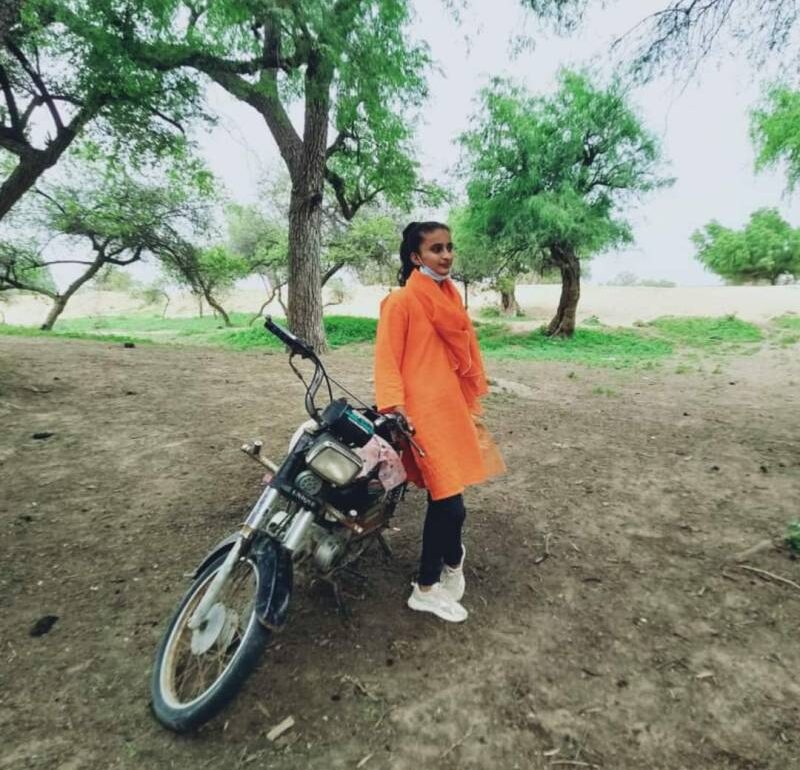She is now well known as Sindhi Chhokri, and she is the first female rap singer from a rural village in Sindh. She also works on her farm, teaches girls voluntarily, and rides a motorcycle to remote parts of the Tharparkar desert to support girls’ education rights.
We speak of a modest Sindhi girl, living in a small village of Mirpurkhas district in her muddy and thatched house with her mother and siblings. In the early days, she was known for her reserved nature, hesitant to engage in conversations even with her close friends and relatives. However, within the confines of her home, she possessed a profound sense of care and responsibility.
One day, Urooj Fatima’s life took an unexpected turn when she made her debut on social media. The sight of her confidently riding a motorbike through the sandy dunes of Tharparkar left many in awe. In the region of Tharparkar, where unpaved roads are the norm and the idea of a girl riding a bike remained a significant social taboo, people looked at her with curiosity and even uncertainty, their minds clouded by stereotypes.
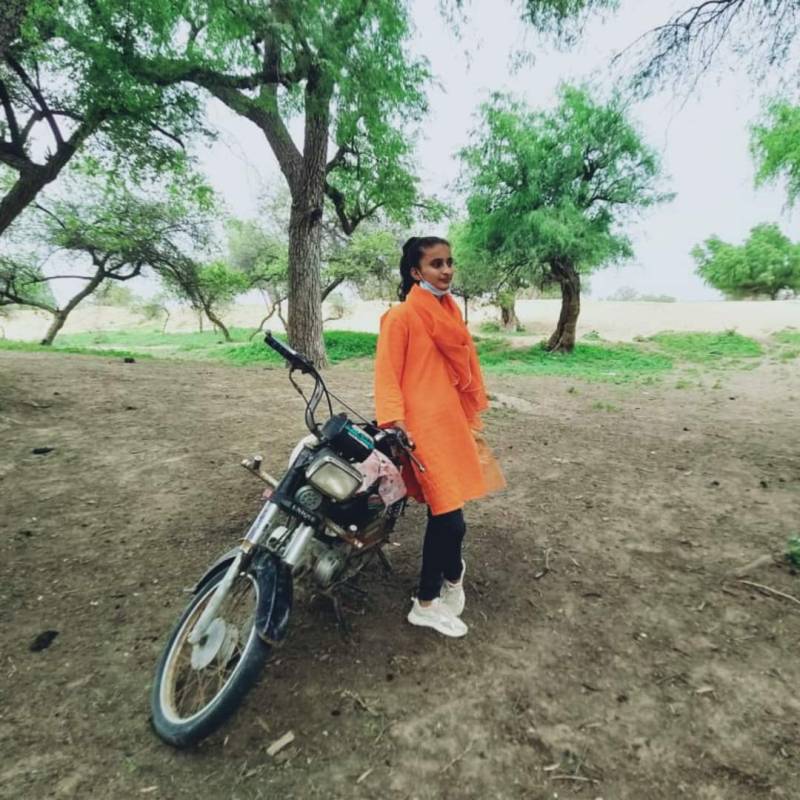
This courageous young girl was not content with just breaking barriers. She witnessed the sorry state of girls’ education in Tharparkar where many schools lacked female teachers and basic school facilities. Parents hesitated to send their daughters to boys’ schools in the villages, as there were no separate seating arrangements and privacy for female students. Determined to make a difference, she, along with her younger sister, embarked on a journey for the promotion of girls’ right to education in remote corners of Tharparkar.
The mission of this girl was clear: to promote girls’ education in less privileged areas through sensitizing the communities. She traversed far-flung areas, going door-to-door, meeting parents and influential figures in the villages, and organizing community awareness meetings, especially with mothers. Through these efforts, she aimed to mobilize communities and advocate for the cause of girls’ education.
Urooj Fatima’s father Yaqoob Kapari Baloch was a progressive, open-minded and political worker. Urooj and her sisters faced opposition from relatives, who believed that girls should stay home and not go to school or work outside the village. The villagers warned Yaqoob Kapari to stop his daughters from going to school and riding motorbikes: if he did not follow the norms of the tribe then he would have to leave the ancestral village. Yaqoob Kapari chose to leave the village and settled on his agricultural land instead. He clearly told his relatives who belonged to Baloch tribes that he would not restrict his daughters and that they will go to school to get education.
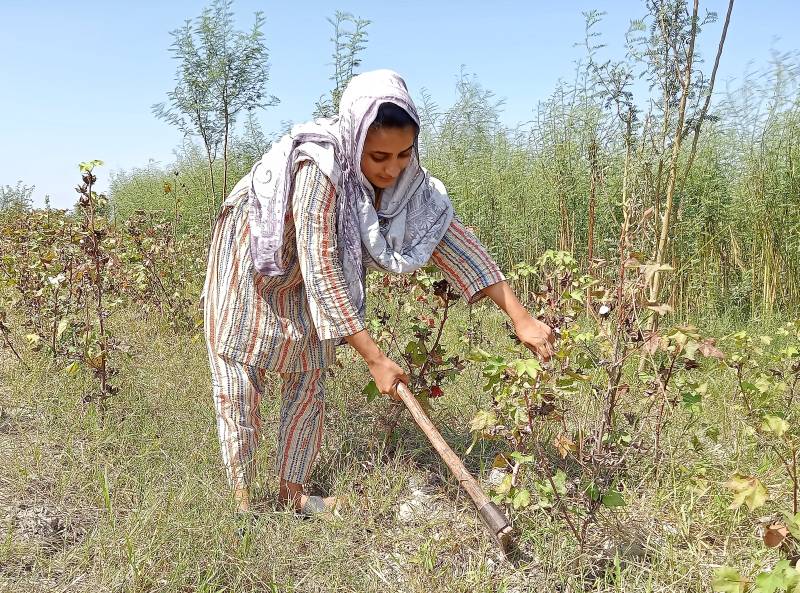
Despite facing hardships and societal pressure, Urooj Fatima with her two sisters continued her education, worked on their agricultural land, fought against adversity, and even lost her father’s support during an illness. Her family went through financial difficulties, but she never gave up. She takes pride in her father’s commitment to his beliefs and gives credit to her younger sister, Khanzadi Kapari, who worked as a women’s rights activist in the area and stood with her during all hardships.
Today, Urooj Fatima and her brother Muhammad Kapari are gaining popularity as Sindhi Chhokri and Toxic Sufi respectively, under the banner of Pahanji Gang. They use rap music to raise awareness about various issues, believing it is an effective way to reach the masses. When Fatima first encountered hip-hop, she didn’t enjoy it because it seemed full of anger and shouting. However, after listening to Emiway Bantai, she realized that music could be used to express life’s challenges, experiences and dreams. Through rap music, Fatima and her group (Pahanji Gang) have started conveying important messages about burning issues in rural Sindh, such as honour killings, child labour, corruption, underdeveloped areas and the abuse of women and children.
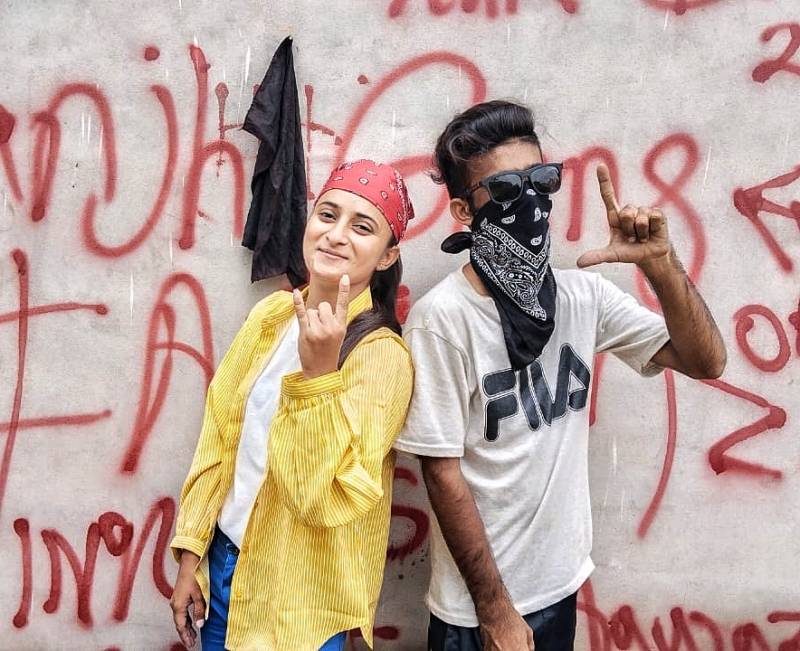
In a society that mostly prefers fast songs, romantic stories and classical music, rap music is a new and valuable phenomenon that is gaining recognition and support. Urooj Fatima believes that they have initiated a ripple effect, and their messages will spread to the masses through stages and rap music. She draws a parallel to Sufi saints from centuries ago who used poetic expression to challenge mindsets, denounce hatred, and combat extremism. The Pahanji Gang has turned to rap to openly address uncomfortable issues that society tends to ignore. Rap serves as a form of peaceful resistance and protest against injustices and inequalities that prevail in society. Over time, it has emerged in various places like Kashmir, Syria, Lebanon, Egypt, and Libya. Rap music and its lyrics are powerful tools to resist, critique, and protest against oppression, corruption, and dictatorship.
Urooj Fatima suggests that promoting rap music in Sindh can be highly effective when it addresses local concerns and shares stories that deeply connect with the community. She believes that people will be more likely to embrace rap music in Sindh due to its diverse appeal, especially if it incorporates elements of the local culture and tackles issues that are pertinent to the region. She understood that rappers use their art to address societal issues, and she felt inspired to do the same.
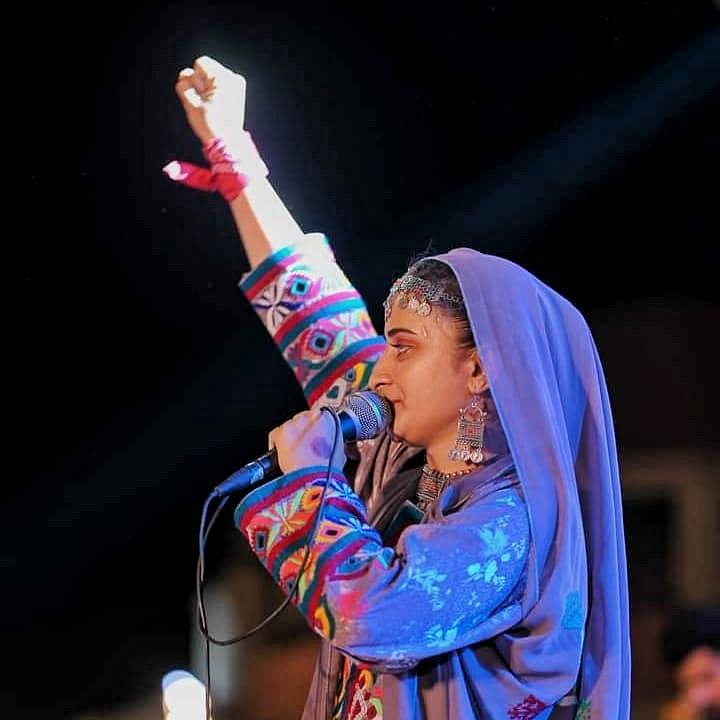
She passionately describes a transformation within her village that was once deeply rooted in old stereotypes and tribal traditions. In the same village, there was a time when Urooj’s own father faced threats for sending his daughters to school. However, today, the same village boasts a significant number of female students. “Moreover, we have embarked on a mission to teach young girls the art of rap, enabling them to perform and shine in this creative field,” Urooj says. “Our objective is to support any aspiring individuals, particularly the youth, who wish to join their rap community and refine their skills. Their ultimate goal is to promote hip-hop culture extensively within the Sindh region.”
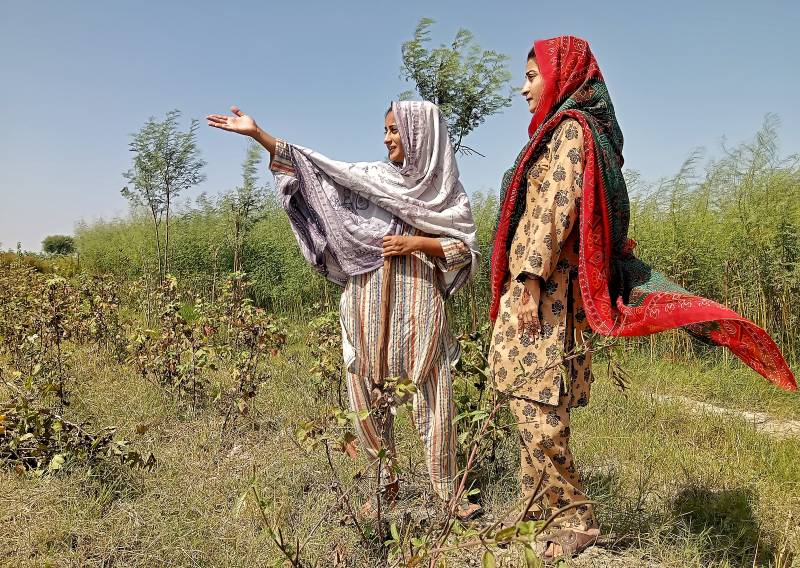
Addressing the challenges in the rap music industry, Urooj Fatima highlights the absence of a well-equipped studio for high-quality voice recording. She currently has a backlog of approximately ten to fifteen items awaiting recording, but the village lacks the necessary electrical infrastructure. Urooj Fatima appeals to the relevant authorities to step up and provide support for the establishment of a studio, with the overarching goal of advancing the rap music scene within the province and across the nation.
The Pahanji Gang has garnered substantial support and popularity among the youth, and they have been consistently presented with opportunities at various festivals. Their trio of top rap songs, namely “Street Talk,” “Awam,” and “Inqilab,” have gained immense recognition and a substantial following on social media. Sindhi Chhokri and Toxic Sufi exhibit a heightened level of confidence in their rap music endeavours, underlining their unwavering trust in their work and dedication to the field.
This post was originally published on this site be sure to check out more of their content.




